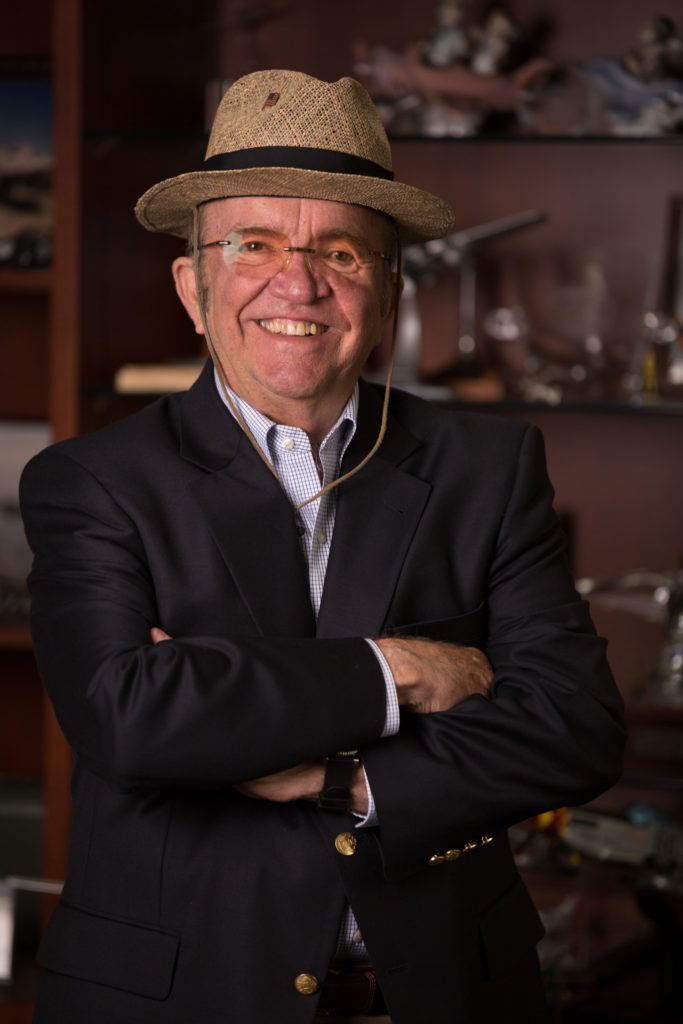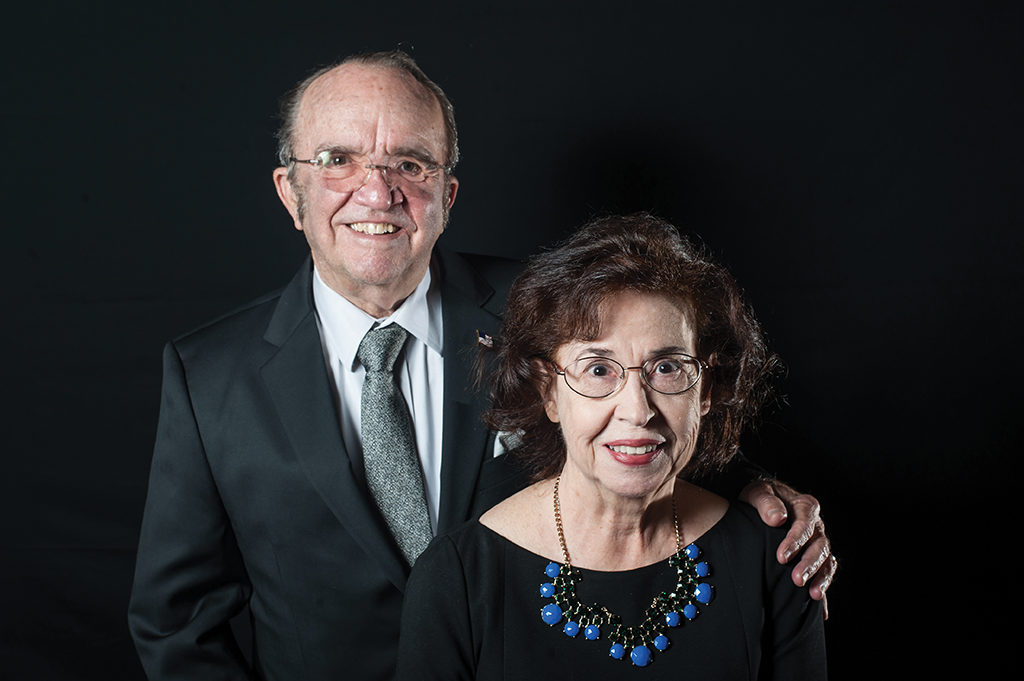How It All Started

Motor Company, and went on to become the
winningest team owner in NASCAR history.
He will be inducted into the NASCAR Hall of
Fame in 2019.
Born in Covington, Ky., Jack Roush is arguably Berea College’s most famous alumnus. A mathematics major turned mechanical engineer, Roush began his career at Ford Motor Company, which led him to professional drag racing, his own parts and tuning business, and the world of road racing in SCCA Trans-Am and IMSA GT competition—all before starting a NASCAR team in 1988. Eventually, he became the winningest team owner in NASCAR history.
Today, he is the chairman of Roush Enterprises, which employs more than 5,000 people and operates more than 50 facilities across North America, Europe and Asia, and provides engineering, testing, and prototyping for the transportation, aerospace, defense and theme park industries. Roush will be inducted into the NASCAR Hall of Fame later this year.
In his own words: I was mechanically inclined as a youngster. I had a screwdriver and would leave a debris field behind me, taking clocks and small motors apart before I was 6 years old. Anything I could take apart with my screwdriver was fair game.
When I was 9 or 10 years old, I used my mechanical skills to keep old lawn mowers running. My brother and I mowed as many as 20 small, half-acre to acre lots. I had to keep the engines running for that small enterprise.
I built my first go-cart out of lawn mower and wagon parts when I was 11 years old. When I started driving at 16, I took junkyard car bodies and components to create powerful, serviceable vehicles so I could drive.
My father came out of World War II determined to jump back into the farming community of Manchester, Ohio, where he was raised. He had three small businesses that didn’t do well.
Near the family farm where he grew up, an ice and coal distribution business had done very well. So, he built an ice and coal distribution business of his own. But it was subsequently pushed aside by the manufacturing and oil refining capacities, which came available at the conclusion of World War II, which soon brought refrigerators and floor-mounted oil burning furnaces within reach of consumers in that area. When that didn’t work out, he decided he’d do a food locker because the farmers would go to town to the food locker to get their frozen meat and vegetables each Saturday. That was the tradition forever. And then home freezers came on the market as well. Now, you didn’t need to go to town for freezer storage space. So the food locker didn’t work out either. Next, he did the wholesale meat and frozen vegetable business, but then the entire country went into a recession after the conclusion of the Korean War. Nothing worked for my father’s businesses, so we went back to the farm for a while.
It would have been very difficult for me to go to college without Berea. I would have had to borrow money. My family didn’t borrow money for things we could do without. As I approached graduation, I had a school superintendent named W.L. Davis who looked into my financial situation and considered my motivations and my aptitudes. He thought I could pass the battery of tests Berea would offer. I had economic need. In 1960, I was accepted as a freshman. Berea provided me an opportunity to get an education without taking on what I considered to be unacceptable debt.
Berea was a great experience. It did not have an engineering program. I majored in mathematics and minored in physics. I took as many elective courses in the Industrial Arts department as I could. The instructors allowed me to have a toolbox in the shop, and I was able to use the shop to work on cars when it suited my purpose.
I jumped into the Berea work program and did the required 10 hours initially in food service, helping supply the food onto the food service lines in the cafeteria. I also repaired bicycles and repaired cars that belonged to Berea staff and the few students that were allowed to have cars. During my senior year, I would trade cars to somebody who had a broken car. I’d fix it, then I’d trade it, too.

I married Della Pauline Correll (’63) as a junior. We met at college. We were in a Thursday Chapel, and we found ourselves sitting side by side. I took her to a downtown movie. We walked down and had a hamburger and milkshake at one of the little restaurants. She invited me to be her Sadie Hawkins date, and we were on our way. We lived in the trailer lot off campus at the bottom of the hill—I remember that the Phelps Stokes Chapel was at the top.
Ten days before finals, our daughter Susan was born in the Berea hospital. That was my graduation present. By the time I graduated, I had already been working almost full time, after classes throughout the week, a full day on Saturday, and in the summers working full-time somewhere else.
Berea helped me develop the entrepreneurial spirit that my family had initiated. I advanced that spirit as much as I could until I graduated. I was then able to get my first job at the Ford Motor Company as a quality-control engineer. I also took a look at junior college teaching before I started my own business.
Without Berea, I probably would have wound up with an automotive junk yard or a parts store or pursued a career in a car dealership or a body repair shop. Instead, with Berea as a launch pad, we have accomplished so much more.


This are amazing stories of motivated people.
Great article and testament to the rewards and occasional flexibility of Berea. Congratulations
Where there’s a will, there’s a way!